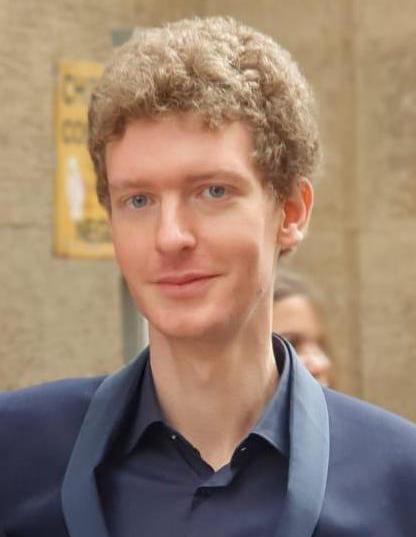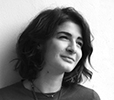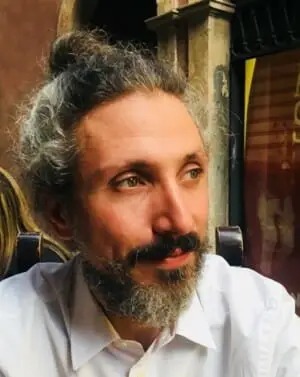Studying at the University of Verona
Here you can find information on the organisational aspects of the Programme, lecture timetables, learning activities and useful contact details for your time at the University, from enrolment to graduation.
Academic calendar
The academic calendar shows the deadlines and scheduled events that are relevant to students, teaching and technical-administrative staff of the University. Public holidays and University closures are also indicated. The academic year normally begins on 1 October each year and ends on 30 September of the following year.
Course calendar
The Academic Calendar sets out the degree programme lecture and exam timetables, as well as the relevant university closure dates..
| Period | From | To |
|---|---|---|
| Sem. 1A | Sep 27, 2021 | Nov 6, 2021 |
| Sem. 1B | Nov 15, 2021 | Jan 12, 2022 |
| Sem. 2A | Feb 14, 2022 | Mar 26, 2022 |
| Sem. 2B | Apr 4, 2022 | Jun 4, 2022 |
| Session | From | To |
|---|---|---|
| Sessione Invernale | Jan 10, 2022 | Feb 12, 2022 |
| Sessione estiva | Jun 6, 2022 | Jul 23, 2022 |
| Sessione autunnale | Aug 29, 2022 | Sep 24, 2022 |
| Session | From | To |
|---|---|---|
| Sessione estiva | Jul 11, 2022 | Jul 16, 2022 |
| Sessione autunnale | Nov 7, 2022 | Nov 12, 2022 |
| Period | From | To |
|---|---|---|
| FESTIVITA' OGNISSANTI | Nov 1, 2021 | Nov 1, 2021 |
| Festa dell'Immacolata | Dec 8, 2021 | Dec 8, 2021 |
| Vacanze di Natale | Dec 25, 2021 | Jan 6, 2022 |
| VACANZE DI PASQUA | Apr 15, 2022 | Apr 19, 2022 |
| Festa della Liberazione | Apr 25, 2022 | Apr 25, 2022 |
| FESTA DEL LAVORO | May 1, 2022 | May 1, 2022 |
| Festività Santo Patrono di Verona | May 21, 2022 | May 21, 2022 |
| Festa della Repubblica | Jun 2, 2022 | Jun 2, 2022 |
| Vacanze estive | Aug 8, 2022 | Aug 15, 2022 |
Exam calendar
Exam dates and rounds are managed by the relevant Humanistic Studies Teaching and Student Services Unit.
To view all the exam sessions available, please use the Exam dashboard on ESSE3.
If you forgot your login details or have problems logging in, please contact the relevant IT HelpDesk, or check the login details recovery web page.
Should you have any doubts or questions, please check the Enrollment FAQs
Academic staff
 francesco.bianchi@univr.it
francesco.bianchi@univr.it
 evita.calabrese@univr.it
evita.calabrese@univr.it
 andrea.cavalletti@univr.it
andrea.cavalletti@univr.it
 elena.desilvestri@univr.it
elena.desilvestri@univr.it

Mastrocinque Attilio
 attilio.mastrocinque@univr.it
attilio.mastrocinque@univr.it
 +39 045802 8386
+39 045802 8386
 stefania.pontrandolfo@univr.it
stefania.pontrandolfo@univr.it
 pieralberto.porcedducilione@univr.it; pierre_pordd@yahoo.it
pieralberto.porcedducilione@univr.it; pierre_pordd@yahoo.it
 045 8028732
045 8028732
 nicola.turrini@univr.it
nicola.turrini@univr.it
 mariarenata.zanchin@univr.it
mariarenata.zanchin@univr.it
Study Plan
The Study Plan includes all modules, teaching and learning activities that each student will need to undertake during their time at the University.
Please select your Study Plan based on your enrollment year.
1° Year
| Modules | Credits | TAF | SSD |
|---|
2° Year activated in the A.Y. 2022/2023
| Modules | Credits | TAF | SSD |
|---|
3° Year activated in the A.Y. 2023/2024
| Modules | Credits | TAF | SSD |
|---|
| Modules | Credits | TAF | SSD |
|---|
| Modules | Credits | TAF | SSD |
|---|
| Modules | Credits | TAF | SSD |
|---|
| Modules | Credits | TAF | SSD |
|---|
Legend | Type of training activity (TTA)
TAF (Type of Educational Activity) All courses and activities are classified into different types of educational activities, indicated by a letter.
History of Ancient Philosophy (2022/2023)
Teaching code
4S007318
Teacher
Coordinator
Credits
6
Also offered in courses:
- History of Ancient Philosophy (p) of the course Bachelor’s degree in Humanities
Language
Italian
Scientific Disciplinary Sector (SSD)
M-FIL/07 - HISTORY OF ANCIENT PHILOSOPHY
Period
Sem. 1B dal Nov 14, 2022 al Dec 23, 2022.
Learning objectives
History of Ancient Philosophy
KNOWLEDGE
The course aims at offering in-depth knowledge of the basic subjects, authors and schools of ancient philosophy (6th Century bC-529 aD), thus allowing students to deepen their knowledge of the history of a fundamental phase of Western philosophy and its most important concepts.
SKILLS
At the end of the course, students will be able: to consider ancient philosophical texts within their proper historical-critical perspective; to approach them from viable hermeneutical points of view; and to judge critically and by themselves the subjects and the authors treated in classes. This will also enable them to compare some topics of ancient philosophy with contemporary subjects and authors. Students will also develop the capacity to communicate philosophical contents to specialists and non-specialists alike, and the capacity to continue their studies at a MA level.
Prerequisites and basic notions
A previous knowledge of ancient philosophy is required. The knowledge of ancient Greek and Latin is not compulsory. More important is a careful lexical research and an interest in a critical reading of philosophical texts.
Program
Course title and content: "Illusion and Imagination in Greek Thought
The course aims to examine the connection between fiction, illusion and imagination in Greek thought. Texts by authors belonging to the poetic and philosophical tradition will be read and commented on, placed in a chronological segment that runs from the Homeric poems to the literature of the Byzantine age. Particular attention will be paid to the notion of ekphrasis (figurative description), and the associated constellation of "vividness" (enargeia) and "imagination" (phantasia) - as it is predominantly configured in ancient rhetorical and philosophical texts as far back as Aristotle. The connotative element of ekphrasis is the interdependence between the visual and the graphic media their mutual integration in a figuration that is articulated through words and in a writing that is articulated through images.
The fundamental theoretical moments of this path will be examined in depth, in the light of themes of decisive importance for the history of ancient philosophy such as the topics of aisthesis (perception) and phantasia (imagination), their role in the theories of perception and knowledge, and how they give way to intellectual, visual and verbal representations.
There will be a shared reading, carried out in the form of a workshop, of some fundamental texts concerning the relationship between fiction, illusion and imagination in the ancient world: this moment of confrontation will imply active participation in the discussion of the positions sustained in the texts and, where possible, a critical examination of them.
TEXTS TO BE BROUGHT AT THE EXAM
A) S. Marino, A. Stavru (eds.), Ekphrasis, Rome, Aracne 2013.
B) G. Lombardo, La figura inevidente, Modena, Mucchi 2021.
Recorded lectures will be available on the University e-learning service and are an integral part of the examination programme. NB These recordings do not substitute the reading of the texts to be brought at the exam.
PROGRAMME FOR NON-ATTENDERS
Non-attending students will bring another text (to be decided with teacher).
Bibliography
Didactic methods
The teaching is carried out in frontal mode. The lessons are made available via streaming (Zoom links are available on the Moodle page of the course). Recordings are placed on the Moodle at the end of each lesson.
Learning assessment procedures
the student will be examined orally; he will be invited to read and comment some passages of the examined texts. The student may write a short essay (5-7 pages) on the monographic section (Aristotle and pleasure). She will send it to the teacher a week before the exam.
The normal duration of the exam session is 15-30 minutes. Exam modes are differentiated between attending and non-attending students (see program).
Evaluation criteria
Ability to organize and articulate the acquired knowledge; critical reasoning on the topics of the course; quality, depth and coherence of the exposition, competence in the use of terminology and expressions rerlated to ancient philosophy.
Criteria for the composition of the final grade
The evaluation is expressed in a grade out of thirty.
Exam language
Italiano
Type D and Type F activities
Una quota dei crediti corrispondenti all’attività formativa dell’intero triennio, determinata dal presente Regolamento in 12 CFU, è riservata alla scelta autonoma da parte della/o studente. Questa scelta può essere orientata sia verso corsi/esami non seguiti/sostenuti in precedenza, sia verso iterazioni di corsi/esami, sia ancora verso altre attività (tutorati, ulteriori competenze linguistiche, partecipazione a convegni o seminari), purché tutte preventivamente approvate dal Collegio Didattico e/o dalla Commissione Didattica del Dipartimento. Tra i 12 crediti dovrà comunque essere presente almeno un esame con voto. In conformità al dettato del D.M. 270/04 e alla luce delle raccomandazioni espresse dal D.M. 26 luglio 2007, capo 3 lettera n), la scelta, che non può essere predeterminata (fatto salvo quanto indicato per le iterazioni), deve comunque essere ispirata a coerenza col piano formativo della/del singola/o studente.
In caso di attività formative non rientranti nelle categorie previste, si dovrà fare richiesta di valutazione al Collegio Didattico di Filosofia fornendo adeguate motivazioni.
Altre informazioni sono reperibili nella Guida per i crediti liberi che è possibile trovare quì
COMPETENZE TRASVERSALI
Scopri i percorsi formativi promossi dal Teaching and learning centre dell'Ateneo, destinati agli studenti iscritti ai corsi di laurea, volti alla promozione delle competenze trasversali:
https://talc.univr.it/it/competenze-trasversali
| years | Modules | TAF | Teacher |
|---|---|---|---|
| 1° 2° 3° | What paradigms beyond the pandemic? | D |
Paola Dal Toso
(Coordinator)
|
| 1° 2° 3° | The contagion and the cure. The world after the virus | D |
Carlo Chiurco
(Coordinator)
|
| 1° 2° 3° | The ethics and aesthetics of the image | D |
Gianluca Solla
(Coordinator)
|
| years | Modules | TAF | Teacher |
|---|---|---|---|
| 1° 2° 3° | What paradigms beyond the pandemic? | D |
Paola Dal Toso
(Coordinator)
|
| 1° 2° 3° | The contagion and the cure. The world after the virus | D |
Carlo Chiurco
(Coordinator)
|
| 1° 2° 3° | Laboratorio “Calendario di Memoria Civile – Giornata della Memoria” | D |
Olivia Guaraldo
(Coordinator)
|
| 1° 2° 3° | Eros and Polis ”and“ In the name of Tiresias: Subjectivation, transit, sexuation | D |
Federico Leoni
(Coordinator)
|
| years | Modules | TAF | Teacher |
|---|---|---|---|
| 1° 2° 3° | Introduction to robotics for humanities students | D |
Paolo Fiorini
(Coordinator)
|
| years | Modules | TAF | Teacher |
|---|---|---|---|
| 1° 2° 3° | "Common world. 2022 Arendt Seminars | D |
Ilaria Possenti
(Coordinator)
|
| 1° 2° 3° | Restorative Justice | D |
Cristina Lonardi
(Coordinator)
|
| 1° 2° 3° | Group Psychology and the Analysis of the Ego, a hundred years later: social bond and new forms of subjectivation. | D |
Matteo Bonazzi
(Coordinator)
|
| 1° 2° 3° | The contagion and the cure. The world after the virus | D |
Carlo Chiurco
(Coordinator)
|
| 1° 2° 3° | Gnoseology and Metaphysics Workshop | D |
Davide Poggi
(Coordinator)
|
| 1° 2° 3° | Eros and Polis ”and“ In the name of Tiresias: Subjectivation, transit, sexuation | D |
Federico Leoni
(Coordinator)
|
| years | Modules | TAF | Teacher |
|---|---|---|---|
| 1° 2° 3° | "Common world. 2022 Arendt Seminars | D |
Ilaria Possenti
(Coordinator)
|
| 1° 2° 3° | Partecipated justice and reforms. The settlement of conflicts with people and for people | D |
Cristina Lonardi
(Coordinator)
|
| 1° 2° 3° | Gnoseology and Metaphysics Workshop | D |
Davide Poggi
(Coordinator)
|
| 1° 2° 3° | Eros and Polis ”and“ In the name of Tiresias: Subjectivation, transit, sexuation | D |
Federico Leoni
(Coordinator)
|
Career prospects
Module/Programme news
News for students
There you will find information, resources and services useful during your time at the University (Student’s exam record, your study plan on ESSE3, Distance Learning courses, university email account, office forms, administrative procedures, etc.). You can log into MyUnivr with your GIA login details: only in this way will you be able to receive notification of all the notices from your teachers and your secretariat via email and soon also via the Univr app.
Student mentoring
Linguistic training CLA
Gestione carriere
Practical information for students
Documents
| Title | Info File |
|---|---|
|
|
pdf, it, 325 KB, 02/05/23 |
|
|
pdf, it, 212 KB, 02/05/23 |
|
|
pdf, it, 131 KB, 02/05/23 |
Graduation
Documents
| Title | Info File |
|---|---|
|
|
pdf, it, 99 KB, 13/10/23 |
|
|
pdf, it, 101 KB, 10/04/24 |











































